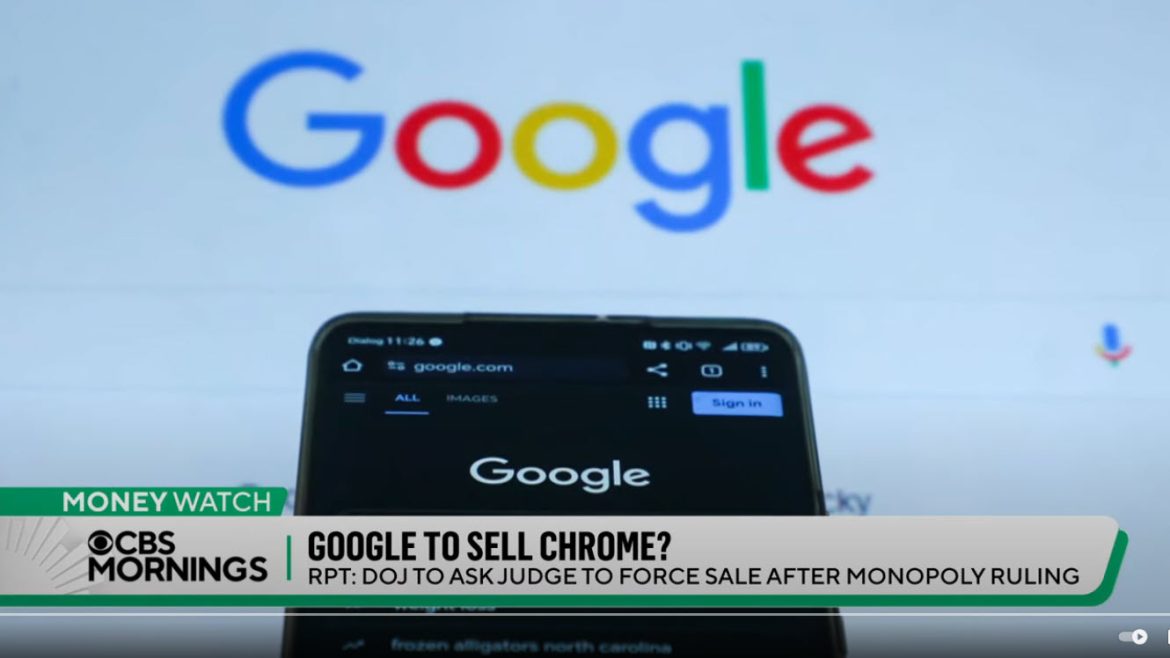In a landmark antitrust case, the U.S. Department of Justice (DOJ) is reportedly seeking to compel Google’s parent company, Alphabet, to sell its Chrome browser. This demand comes in the wake of a recent court ruling that found Google’s search engine practices to constitute an illegal monopoly, marking a significant challenge to the tech giant’s dominance in the digital landscape.
The Monopoly Ruling
The ruling stems from a high-profile antitrust lawsuit filed by the DOJ and a coalition of state attorneys general, accusing Google of unfairly maintaining its dominance in the search engine market. The court found that Google violated antitrust laws by using exclusionary agreements to prioritize its search engine on devices and browsers, effectively limiting competition.
Judge Amit Mehta, who presided over the case, concluded that Google’s business practices unfairly suppressed innovation and consumer choice. The ruling underscores growing concerns about the power of tech giants and their influence on the digital economy.
DOJ’s Push for Chrome Divestiture
According to reports, the DOJ is now pushing for a drastic remedy: requiring Alphabet to divest its Chrome browser. Chrome, launched in 2008, has become the most widely used web browser globally, boasting a market share of nearly 65%. Critics argue that Chrome’s integration with Google’s search engine has solidified the company’s dominance, making it difficult for competitors to gain a foothold.
If the court orders the sale of Chrome, it would represent one of the most significant antitrust actions against a tech company since the breakup of AT&T in the 1980s. Such a move could reshape the browser market and create new opportunities for competitors like Mozilla’s Firefox and Microsoft’s Edge.
Google Responds
Google has strongly denied any wrongdoing and has vowed to appeal the ruling. In a statement, the company said, “We believe our services provide value to consumers and promote competition. We will continue to defend our practices and work to ensure that users have access to the best tools for searching and browsing.”
Alphabet’s legal team argues that divesting Chrome would harm consumers by disrupting their access to a seamless browsing experience. They also warn that such a move could set a dangerous precedent for government intervention in the tech sector.
Broader Implications for Big Tech
This case is part of a broader effort by the U.S. government to rein in the power of tech giants, including Meta, Amazon, and Apple. Antitrust regulators have increasingly scrutinized the ways these companies use their platforms to dominate markets and stifle competition.
Critics of Google’s practices applaud the ruling and the DOJ’s push for divestiture, viewing it as a long-overdue step toward leveling the playing field. Others, however, caution that breaking up major tech companies could lead to unintended consequences, including reduced innovation and efficiency.
What’s Next?
The case is far from over, as Google prepares to appeal and the DOJ pushes forward with its proposed remedies. If the court sides with the DOJ, Alphabet may be required to find a buyer for Chrome, creating significant ripples in the tech industry.
As the legal battle continues, the case serves as a pivotal moment in the ongoing debate over the role of government regulation in curbing the power of Big Tech. For consumers, the outcome could redefine how they access and interact with digital platforms.



